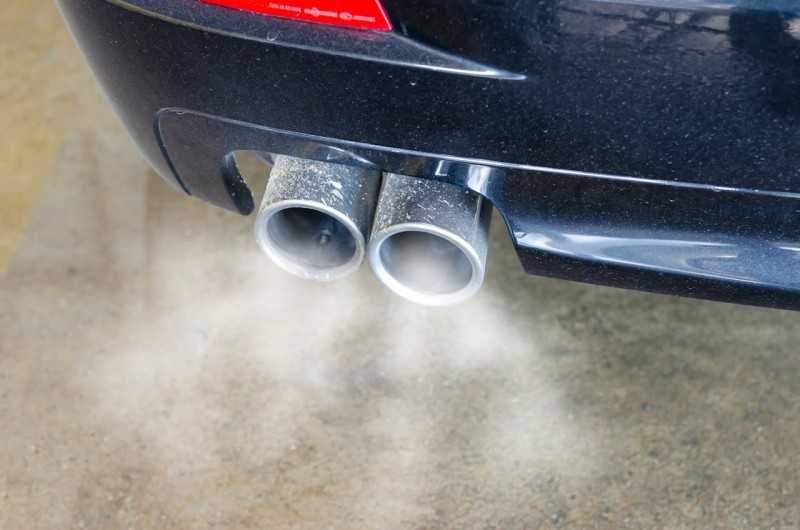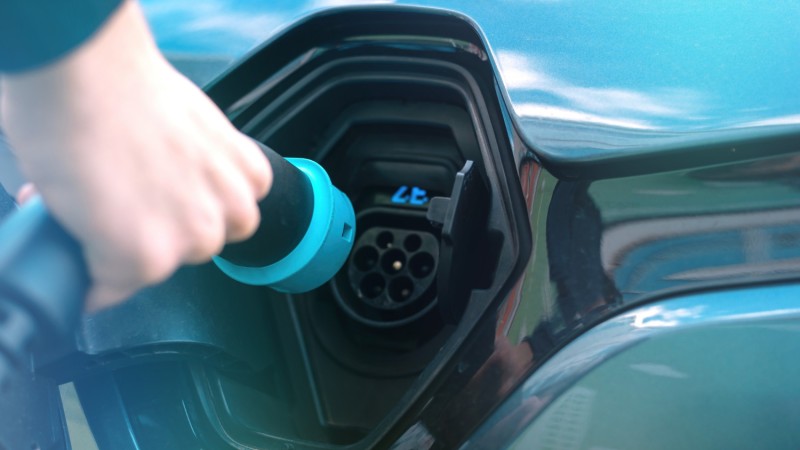Our Scrappage, Recycling and Car Blog
later post | index | earlier post
CO2 emissions and the automotive industry
Wednesday, 19 March 2025

Ever wondered what carbon dioxide (CO2) emissions are generated by your vehicle? You might not be aware that CO2 emissions can influence the amount of car tax you pay, as well as the rate of company car tax for fleet users.
Although there is a growing demand for hybrid or electric vehicles (At the end of 2024 there were more than 1,360,000 battery powered electric vehicles in the UK), most cars on the road today still have petrol or diesel engines. When your engine is running, your vehicle’s fuel mixes with the air in the engine to generate the power needed to drive. Because petrol and diesel naturally contain a lot of carbon, burning them produces carbon dioxide gas which is then emitted into the atmosphere via the exhaust pipe.
Before any car, van, or other vehicle type is put on sale, its fuel economy and CO2 emissions levels are tested and measured. The levels of CO2 emitted by each vehicle are recorded as units of g/km (grams per kilometre) which are then used to calculate the amount of vehicle tax you as the owner will need to pay.
Car CO2 emissions
Transport is said to be the biggest contributor to CO2 emissions in the UK, with 29% of all Carbon Dioxide emissions in 2023 coming from the transport sector. With the focus shifting towards sustainability and creating more environmentally friendly models, many people are considering switching their current vehicle to a lower emission model.
You can check the CO2 emissions of your current vehicle and which tax bracket it falls under using the V5C document.
CO2 emissions and vehicle tax
But what is a good CO2 emission for a car? Well, in terms of vehicle tax, generally speaking the lower the CO2 emissions, the cheaper your vehicle tax will be.
Any vehicles registered between 1st March 2001 and 31st March 2017 will have their tax rates based solely on their CO2 emissions. Any car with an emissions rating of less than 100g/km is exempt from tax, while vehicles with higher CO2 emissions will be taxed accordingly.
Vehicles registered on or after 1st April 2017, are now taxed on a newer system. Any car with an emissions rating of 0g/km CO2 (electric and hydrogen powered vehicles) are exempt from tax. Hybrid vehicles or cars with super-efficient petrol or diesel engines that produce 50g/km or less of CO2 emissions, also qualify for a reduced tax rate. For the first year, other vehicles will be placed into one of thirteen tax bands and be taxed based on CO2 emissions. This is often included in the purchase price of the car. After the first year, drivers will pay a flat fee of £165 per year.
What cars emit the most CO2?
While CO2 emissions will vary from model to model, generally cars with larger engines, higher fuel consumption, and older technology will produce higher levels of CO2. These include larger SUVs and trucks, where their size and weight can cause higher CO2 emissions. Similarly, high performance sports or luxury cars which make use of a bigger engine to increase speed or comfort will also produce more CO2 than other types of cars.
What causes high CO2 emissions in cars?
High CO2 emissions in cars can be due to several factors, including:
- Fuel combustion
- Engine size and power
- Driving behaviour
- Lower fuel efficiency
- Vehicle weight
How can I reduce CO2 emissions in my petrol car?
As previously mentioned, CO2 emissions can be influenced by numerous factors, some of which are within your control as a driver. Top tips to reduce your CO2 emissions include:
- Driving considerately and avoiding sudden acceleration as much as possible.
- Monitoring your tyre pressure.
- Reducing the overall weight of your vehicle where possible by removing things like roof racks when they’re not being used.
- Switching the engine off when you can rather than leaving it running.
- When possible, using premium over regular fuel.
- Change your cars oil and air filter regularly.
- Ensure your vehicle has regular services and maintenance checks.
Proactively trying to reduce your car’s CO2 emissions will not only benefit your bank balance. You’ll also be having a positive impact on the environment and getting more miles per gallon.
What is classed as a low emission car?

A low emission car or vehicle is anything that produces lower levels of carbon dioxide and other greenhouse gases compared to traditional petrol- or diesel-powered cars. Common types of low emission cars include electric vehicles such as Teslas, hybrid, or plug-in hybrid cars. Fuel cell vehicles (FCVs) are also classed as low emission cars as they generate electricity through a hydrogen fuel cell chemical reaction.
Should you choose a low CO2 emission car?
There are several benefits to choosing a low CO2 emission car if you can.
Environmental impact
Naturally, low CO2 emission cars produce fewer greenhouse gases, which can help to improve your carbon footprint as an individual. Cars with low CO2 emissions also have a cleaner combustion process and better fuel efficiency which reduces emissions of other harmful pollutants, such as nitrogen oxides (NOx), particulate matter (PM), and volatile organic compounds (VOCs), all of which lead to poorer air quality.
Government incentives
If you are considering purchasing a low emission vehicle, it’s well worth looking at the various government incentives that you could be eligible for. These can include anything from tax credits to reduced registration fees. For example, the Electric Vehicle Homecharge Scheme Grants are available for drivers planning to buy or who already own an electric vehicle and can help to reduce the installation costs of an electric vehicle charger by up to 75%. Applying for government incentives is a great way to help reduce the overall cost of purchasing and owning a low emission car.
Higher fuel efficiency
All low emission vehicles, but particularly electric or hybrid vehicles, have a higher fuel efficiency compared to higher emission vehicles. This can help owners to reduce their fuel costs throughout their vehicle’s lifetime and reduce the impact that the fluctuations of fuel prices can have.
Advanced technology
Choosing a low emission car also means you’ll be benefitting from the latest technological advancements in the automotive industry. For example, since they were first developed electric vehicles have seen improvements in their battery range, charging infrastructure, and overall performance. This means that they’re not just great ‘low emission cars’ to own, but also great cars to own in their own right.
Scrap your old car with ASM Auto Recycling
If you currently own an older, or less efficient vehicle, it might be time to consider scrapping your car in favour of an alternative low CO2 emissions vehicle.
At ASM Auto Recycling, we’ve been recycling older, inefficient vehicles for more than 40 years. As a permitted Authorised Treatment Facility (ATF) we process all end-of-life vehicles in our state-of-the-art vehicle dismantling facilities to responsibly remove and store potential toxins and set aside used car parts that can be reused again on other vehicles.
Better still, we can pay you an industry competitive price for your scrap vehicle. It doesn’t matter whether it has failed its recent MOT or is even a non-runner, we offer a salvage car collection service from our main hub in Thame, Oxford, retrieving your car at a time and location to suit you.
With prompt collection and immediate payment, discover your car’s scrap value today using our free car scrap valuation calculator.
later post | index | earlier post
Categories
- Car Maintenance 25
- Driving Abroad 2
- Economy 1
- Environment 3
- Insurance 2
- Light-Hearted 1
- Motoring Guides 6
- Motorways 1
- New Car Sales 1
- Safety 4
- Salvage 14
- Social & Community 5
- Used Cars 19
- Winter Driving 2
Recent posts
- Car Cleaning Tips
- The Most Stolen Cars in UK
- ABI Vehicle Salvage Code of Practice
- Car CO2 Emissions
- How To Replace A Car Air Filter
- Recycling a Car: 5 Fascinating Facts
- Clocking, Cloning, Ringing and Cut & Shut
- MOT: the complete guide
- Used Tyres Guide
- What is GAP insurance?
- Guide to finding a replacement car engine
- Does the scrap value of steel affect your car’s scrap value?
- What are the most valuable salvage car parts?
- The Ultimate Guide to Replacing Wing Mirrors
- ASM Has Procured Over 350 Jaguar and Land Rover Flood-Damaged Cars!